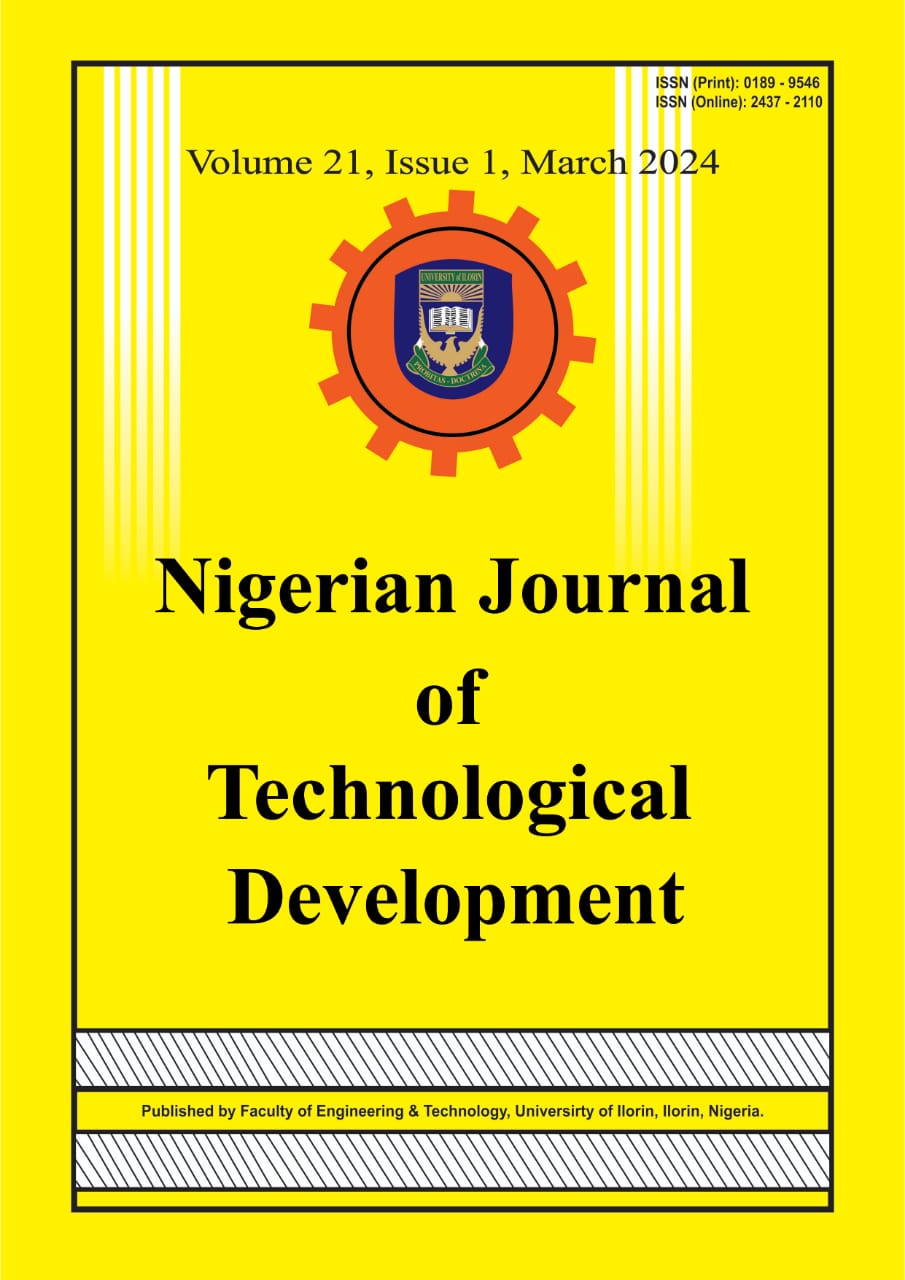Consensus Issues in Multi-Agent-Based Distributed Control with Communication Link Impairments
DOI:
https://doi.org/10.63746/njtd.v21i1.2212Keywords:
consensus protocol, multi-agent systems, distributed control, link impairments, communication graph, consensus protocol, multi-agent systems, distributed control, link impairments, communication graph.Abstract
In multi-agent systems, achieving consensus among autonomous agents is a fundamental problem with wide-ranging applications, from autonomous robotics to distributed sensor networks. However, the real-world deployment of such systems often involves communication links prone to impairments, including packet loss, delays, and network congestion. These communication challenges present formidable obstacles to achieving consensus reliably and efficiently. In this paper, consensus protocols were introduced for network with and without communication impairments and convergence analysis were provided in all the cases. The intricate dynamics of consensus issues in multi-agent-based distributed control under the influence of communication link impairments, connectivity and consensus protocol were established. Undirected communication graphs used to model the topology for agents’ connectivity is significant to addressing consensus issues of communicating agents. The paper also discusses the tradeoffs and design considerations in developing consensus strategies resilient to communication failures while optimizing performance. Simulation results show that an isolated agent in a network can achieve consensus only when there is a reference value. It was also established that communication impairments significantly degrade the performance of distributed agents in a network.
References
Cruz-piris, L. (2018). Optimized Sensor Network and Multi-Agent Decision Support for Smart Traffic Light Management. https://doi.org/10.3390/s18020435
Giannini, S. A. Petitti; D. Di Paola and A. Rizzo. (2016). Asynchronous Max-Consensus Protocol with Time Delays: Convergence Results and Applications. IEEE Transactions on Circuits and Systems I: Regular Papers, 63(2), 256–264. https://doi.org/10.1109/TCSI.2015.2512721
Han, R; L. Meng; G. Ferrari-Trecate; A. A. Coelho; J. C. Vasquez and J. M. Guerrero. (2017). Containment and Consensus-Based Distributed Coordination Control to Achieve Bounded Voltage and Precise Reactive Power Sharing in Islanded AC Microgrids. IEEE Transactions on Industry Applications, 53(6), 5187–5199. https://doi.org/10.1109/TIA.2017.2733457
Han, Y.; K. Zhang; H. Li; E. A. Coelho and J. M. Guerrero. (2018). MAS-Based Distributed Coordinated Control and Optimization in Microgrid and Microgrid Clusters: A Comprehensive Overview. IEEE Transactions on Power Electronics, 33(8), 6488–6508. https://doi.org/10.1109/TPEL.2017.2761438
Lewis, F. L.; Z. Hongwei; H. Kristian and D. Abhijit. (2014). Cooperative control of multi-agent systems. In Autonomous Vehicle Navigation. Springer US. https://doi.org/10.1201/b19544-7
Li, S.; J. Liu and R. R. Negenborn. (2019). Distributed coordination for collision avoidance of multiple ships considering ship maneuverability. Ocean Engineering, 181, 212–226. https://doi.org/10.1016/j.oceaneng.2019.03.054
Li, Z. and Duan, Z. (2014). Distributed consensus protocol design for general linear multi-agent systems: A consensus region approach. IET Control Theory and Applications, 8(18), 2145–2161. https://doi.org/10.1049/iet-cta.2014.0012
Liu, W.; W. Gu; J. Wang; W. Yu and X. Xi. (2018). Game Theoretic Non-Cooperative Distributed Coordination Control for Multi-Microgrids. IEEE Transactions on Smart Grid, 9(November 2019), 6986–6997. https://doi.org/10.1109/TSG.2018.2846732
Lv, Y.; Z. Li and Z. Duan. (2018). Distributed adaptive consensus protocols for linear multi-agent systems over directed graphs with relative output information. IET Control Theory and Applications, 12(5), 613–620. https://doi.org/10.1049/iet-cta.2017.0615
Nojavanzadeh, D.; S. Lotfifard; Z. Liu; A. Saberi; and A. A. Stoorvogel. (2021). Scale-free Distributed Cooperative Voltage Control of Inverter-based Microgrids with General Time-varying Communication Graphs. IEEE Transactions on Power Systems, 1–8.
Olfati-Saber, R. and Murray, R. M. (2004). Consensus problems in networks of agents with switching topology and time-delays. IEEE Transactions on Automatic Control, 49(9), 1520–1533. https://doi.org/10.1109/TAC.2004.834113
Shang, Y. (2020). Resilent consensus in multi-agent systems with state constraints. Automatica, 122(ISSN 0005-1098), 1–9.
Shrivastava, S.; B. Subudhi and S. Das. (2019). Noise-resilient voltage and frequency synchronisation of an autonomous microgrid. IET Generation, Transmission and Distribution, 13(2), 189–200. https://doi.org/10.1049/iet-gtd.2018.6409
Villarrubia, G.; J. F. Paz; D. H. De Iglesia; D. La and J. Bajo. (2017). Combining Multi-Agent Systems and Wireless Sensor Networks for Monitoring Crop Irrigation. https://doi.org/10.3390/s17081775
Wang, Q. I. and Wang, J. (2018). Fully Distributed Fault-Tolerant Consensus Protocols for Lipschitz Nonlinear Multi-Agent Systems. IEEE Access, 6, 17313–17325. https://doi.org/10.1109/ACCESS.2018.2821918
Xianji, J.; L. Jianquan; T. Weiming; L. Lei and L. Zhongwei. (2017). Multi-agent trust-based intrusion detection scheme for wireless sensor networks. 0, 1–12. https://doi.org/10.1016/j.compeleceng.2017.04.013
Yanmaz, E.; S. Yahyanejad; B. Rinner; H. Hellwagner and C. Bettstetter. (2018). Drone networks: Communications, coordination, and sensing. Ad Hoc Networks, 68, 1–15. https://doi.org/10.1016/j.adhoc.2017.09.001
Zhang, H.; S. Kim; Q. Sun and J. Zhou. (2017). Distributed Adaptive Virtual Impedance Control for Accurate Reactive Power Sharing Based on Consensus Control in Microgrids. IEEE Transactions on Smart Grid, 8(4), 1749–1761. https://doi.org/10.1109/TSG.2015.2506760

Downloads
Published
Issue
Section
License
Copyright (c) 2024 Nigerian Journal of Technological Development

This work is licensed under a Creative Commons Attribution-NonCommercial-ShareAlike 4.0 International License.
In accordance with the Copyright Act of 1976, which became effective January 1, 1978, the following statement signed by each author must accompany the manuscript submitted: "I, the undersigned author, transfer all copyright ownership of the manuscript referenced above to the Nigerian Journal of Technological Development, in the event the work is published. I warrant that the article is original, does not infringe upon any copyright or other proprietary right of any third party, is not under consideration by another journal, and has not been published previously. I have reviewed and approved the submitted version of the manuscript and agree to its publication in the Nigerian Journal of Technological Development." A copyright transfer form can be downloaded from the NJTD Website (http://njtd.com.ng/index.php/njtd). Author(s) will be consulted, whenever possible, regarding republication of material. All authors must have access to the data presented, and the authors and sponsor (if applicable) must agree to share original data with the editor if requested.





